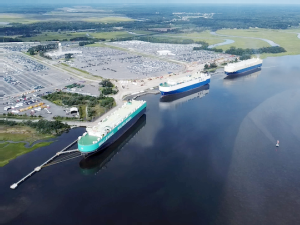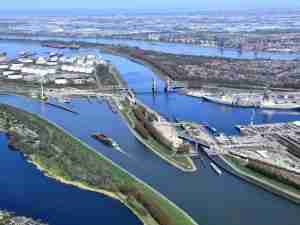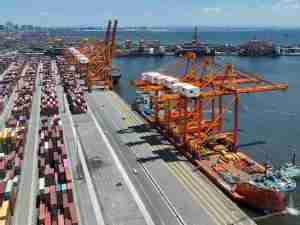“Continuously improving our Safety performance is part of our long-term strategy and is not in any way minimized or marginalized by other current company priorities,” said Henrik Kristensen, APM Terminals’ Head of Health, Safety, Security and Environment, “We must keep in mind that this is an ongoing process and that our ultimate goal for APM Terminals’ Global Terminal Network is zero accidents. Safety is and will always be an integral part of the way we do business.”
LTIF measurement and Global Safety Day are part of APM Terminals’ ongoing push to constantly improve safety performance throughout the Global Terminal Network. Global Safety Day is designed to reach waterfront labor, port vendors and others using APM Terminals’ facilities to instill a “culture of safety” and the adoption of best-practice procedures. Feedback on safety statistics and areas for improvement are discussed to create a sense of urgency, importance and personal ownership.
The safety culture initiative has sparked a healthy competition among the far-flung scope of the APM Terminals portfolio with new individual facilities regularly reporting the establishment of new safety records. On September 3, APM Terminals Aarhus, Denmark, which handled 300,000 TEUs in 2008, announced a new milestone of 100 LTI-free days, on the heels of APM Terminals Zeebrugge’s 200 LTI-free day stretch set on August 29th. The Zeebrugge terminal has an annual capacity of 850,000 TEUs. Notably, APM Terminals-managed Apapa Container Terminal in Nigeria also reached the 200-day LTI-free milestone in June. APM Terminals assumed the Apapa concession in 2005, and increased throughput to 540,000 TEUs in 2008. Today, 22 out of the 48 operational terminals have 100 LTI-free days.
Over 1,700 employees at the APM Terminals-managed Port of Tanjung Pelepas (PTP), Malaysia, for example, completed APM Terminals’ Safety Culture Workshop last spring, bringing PTP’s participation rate to an impressive 100% since the program’s official introduction at the facility while significantly reducing injury risks at a terminal that has an annual throughput of over 5.5 million TEUs.
The US terminals also have shown improvements, although the injury rate is not declining as fast as expected. The severity of injuries however, is declining, which is a direct result of the drive to zero campaign and daily actions to mitigate risks at the dock.
Globally, more than 16,000 employees have been through the Safety Culture Program since it was launched end of 2008. In the Port of Salalah, Oman – an APM Terminals managed facility, over 2500 staff were trained in the workshops and the port’s LTI’s have significantly improved thereafter.
A “Lost-Time Injury” is defined by the industry as an injury that results in the absence from work for more than 24 hours. LTIF figures are expressed as lost-time injuries per million hours worked.










